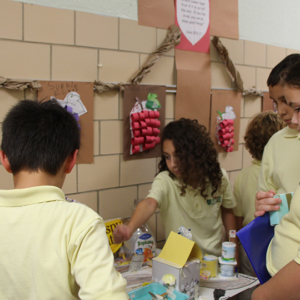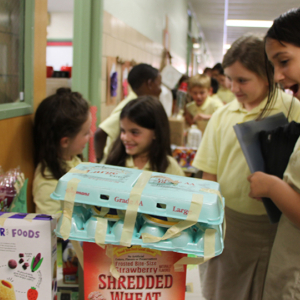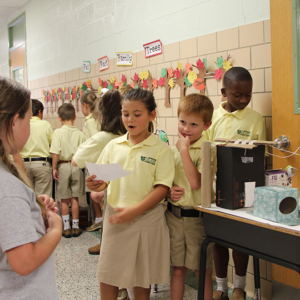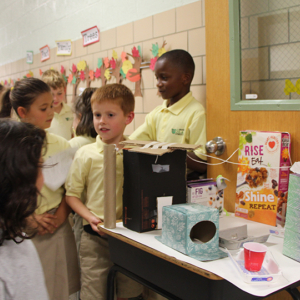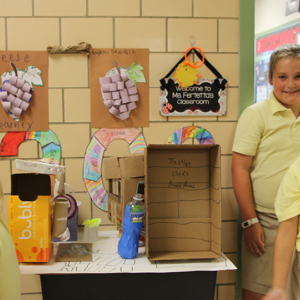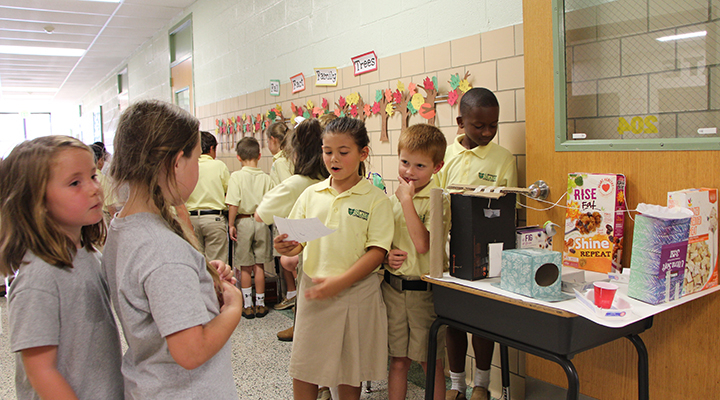
Second Graders Create Recycled Communities
Recently, second grade students had an opportunity to showcase what they have learned in Social Studies. Their lessons have explored urban, suburban and rural communities. To demonstrate their knowledge, teams of students built their assigned community type out of recycled materials. Presenting their projects to other Monsignor Slade students during an exhibition helped to reinforce their knowledge.
During a school-wide prayer service, our students learned that Pope Francis believes that all Christians are required to be stewards of the earth and that humans should care for the earth just as they would incorporate other Beatitudes like feed the hungry or care for the sick into their daily lives. At Monsignor Slade Catholic School, our teachers work to reinforce lessons such as this one and pursue our quest to be a green school, by creating projects and assignments where students can incorporate the reuse of household items.
As the projects were displayed for the student body to view, Slade second graders found clever uses for water bottles, yogurt cups, paper towel rolls and more!
In an urban community, the teams created skyscrapers from boxes, light posts from water bottles, and car from plastic cups. Their projects included roads, parks and greenspaces, areas for parking, street signs, and malls. In one project, the students even added an ice cream truck!
The rural community representations included silos, barns, fields of cornstalk, tractors and pigs -- all made of recycled materials. The students described rural environments as open, with less people and cars, but more animals!
Suburban communities featured more houses, some cars and often stores or play areas. There were even a few depictions of the students’ own homes and streets!
Visited by kindergarten, first and fourth graders, the children were able to demonstrate their knowledge of the communities and what they had learned.
